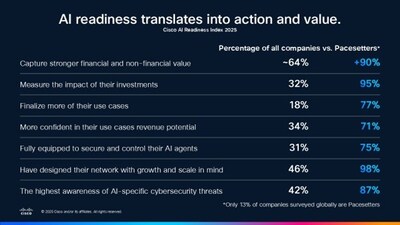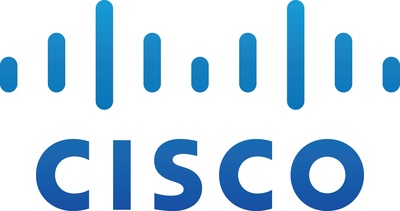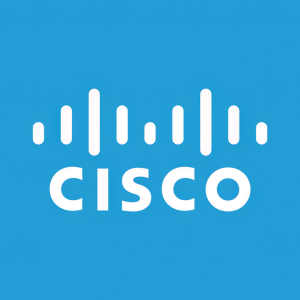Cisco AI Research: The Most AI-ready Companies Outpace Peers in the Race to Value
Rhea-AI Summary
Cisco (NASDAQ: CSCO) released the 2025 CiscoAI Readiness Index showing that the most AI-ready organizations — called "Pacesetters" (~13% of surveyed firms) — materially outperform peers across adoption, infrastructure, security, and value metrics.
Key findings: Pacesetters are 4x more likely to move pilots into production, 50% more likely to see measurable AI value, and nearly all (98%) design networks for AI scale vs 46% overall. The report warns of rising AI Infrastructure Debt driven by limited GPU capacity (26% with robust GPUs), scaling constraints, and data-centralization gaps.
Positive
- Pacesetters 4x likelier to move pilots into production
- Pacesetters 50% more likely to report measurable AI value
- 98% of Pacesetters design networks for AI growth and scale
- 79% of Pacesetters rank AI as top investment priority
Negative
- Only 26% of organizations report robust GPU capacity
- 54% say their networks cannot scale for AI complexity
- 62% expect workloads to rise over 30% within three years
- Fewer than one in three can detect or prevent AI-specific threats
News Market Reaction
On the day this news was published, CSCO gained 1.78%, reflecting a mild positive market reaction.
Data tracked by StockTitan Argus on the day of publication.
The 'Pacesetters' are 4x more likely to move AI pilots into production, and
News summary:
-
AI adoption matters: The most AI-ready organizations are 4x more likely to move pilots into production and
50% more likely to see measurable value. -
Agentic AI on the rise:
83% plan to deploy AI agents, and nearly40% expect them to work alongside employees within a year — but few have the secure infrastructure to sustain it. - Barriers to AI adoption: The report identifies some of the obstacles that risk slowing innovation and growth, such as rising workloads, insufficient GPU capacity, and a lack of centralized data.
The Pacesetters' sustained advantage indicates a new form of resilience: a disciplined, system-level approach that balances strategic drivers with the data and infrastructure needed to keep pace with AI's accelerating evolution. They're already architecting for the future with
The combination of foresight and foundation is delivering real, tangible results at a time when two major forces are starting to reshape the landscape: AI agents, which raise the bar for scale, security, and governance; and AI Infrastructure Debt, the early warning signs of hidden bottlenecks that threaten to erode long-term value.
"We're moving past the era of question-answering chatbots and stepping into the next major phase of AI: agents that independently execute tasks," said Jeetu Patel, Cisco's President and Chief Product Officer. "Today's study shows that over
The Pacesetter profile: Readiness as competitive advantage
Cisco's research outlines a consistent pattern among these leaders delivering real returns.
-
They make AI part of the business, not a side project.
Nearly all Pacesetters (99% ) have a defined AI roadmap (vs58% overall) and91% (vs35% ) have a change-management plan. Budgets match intent, with79% making AI the top investment priority (vs24% ) and96% with short- and long-term funding strategies (vs43% ). -
They build infrastructure that's ready to grow.
They architect for the always-on AI era.71% of Pacesetters say their networks are fully flexible and can scale instantly for any AI project (vs15% overall), and77% are investing in new data-center capacity within the next 12 months (vs43% ). -
They move pilots into production.
62% have a mature, repeatable innovation process for generating and scaling AI use cases (vs13% overall), and three-quarters (77% ) have already finalized those use cases (vs18% ). -
They measure what matters.
95% track the impact of their AI investments — three times higher than others — and71% are confident their use cases will generate new revenue streams, more than double the overall average. -
They turn security into strength.
87% are highly aware of AI-specific threats (vs42% overall),62% integrate AI into their security and identity systems (vs29% ), and75% are fully equipped to control and secure AI agents (vs31% ). Trust is part of the Pacesetters' value equation.
Pacesetters achieve more widespread results than their peers because of this approach:
AI agents: Ambition outpacing readiness
The Index shows
Pacesetters are again the exception. Their disciplined, system-level approach has already helped lay the foundations they will need to scale.
AI Infrastructure Debt: The emerging drag on value
The report introduces a new concept — AI Infrastructure Debt — the modern evolution of technical and digital debt that once held back digital transformation.
It's the silent accumulation of compromises, deferred upgrades, and underfunded architecture that erodes the value of AI over time. Some early warning signs are already visible:
These early warning signs point to a gap between AI ambition and operational readiness. But when the systems that power AI aren't secure, the debt can increase risk. Pacesetters aren't immune, but their foresight, governance, and investment discipline help them to avoid problems compounding into more costly risks.
Download the report: Value follows readiness
As agentic systems and autonomous AI push organizations into an era of constant compute demand, the report proves value follows readiness, with the most AI-ready organizations setting the pace for others to follow.
About the Cisco AI Readiness Index 2025
The Cisco AI Readiness Index 2025 is a global study, now in its third year, based on a double-blind survey of 8,000 senior IT and business leaders responsible for AI strategy at organizations with over 500 employees across 26 industries.
About Cisco
Cisco (NASDAQ: CSCO) is the worldwide technology leader that is revolutionizing the way organizations connect and protect in the AI era. For more than 40 years, Cisco has securely connected the world. With its industry leading AI-powered solutions and services, Cisco enables its customers, partners and communities to unlock innovation, enhance productivity and strengthen digital resilience. With purpose at its core, Cisco remains committed to creating a more connected and inclusive future for all. Discover more on The Newsroom and follow us on X at @Cisco.
Cisco and the Cisco logo are trademarks or registered trademarks of Cisco and/or its affiliates in the
![]() View original content to download multimedia:https://www.prnewswire.com/news-releases/cisco-ai-research-the-most-ai-ready-companies-outpace-peers-in-the-race-to-value-302582690.html
View original content to download multimedia:https://www.prnewswire.com/news-releases/cisco-ai-research-the-most-ai-ready-companies-outpace-peers-in-the-race-to-value-302582690.html
SOURCE Cisco Systems, Inc.









